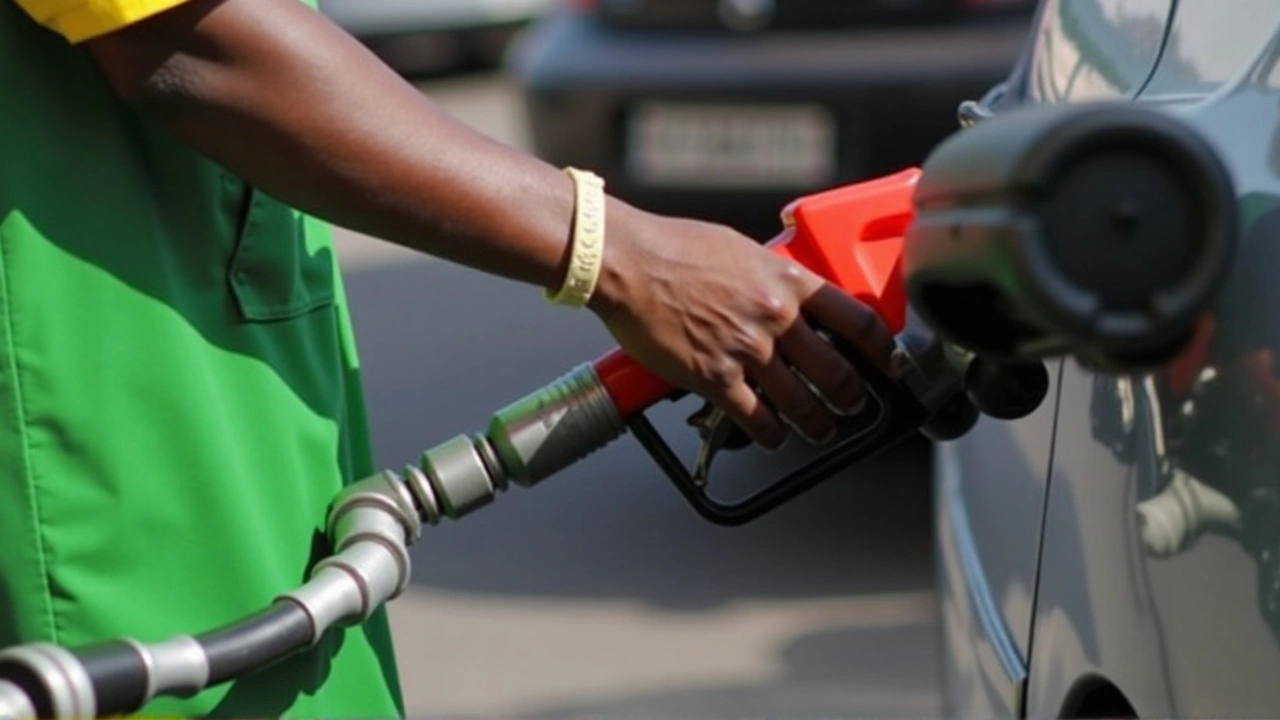Introduction to the Current Fuel Pricing Scenario in Nigeria
The landscape of fuel pricing in Nigeria is set for a potential transformation as the Petroleum Products Retail Outlets Owners Association of Nigeria (PETROAN) makes a compelling case to the Nigerian National Petroleum Company Limited (NNPCL). The appeal follows a recent price reduction by Dangote Refinery, a notable player in the country's oil sector, which has dramatically cut its ex-depot price of Premium Motor Spirit (PMS), commonly known as petrol. This move has brought a sigh of relief among motorists and various sectors impacted by fluctuating fuel prices. The conversation around fuel pricing is vibrant and reflective of the economic pressures facing Nigerians, especially during peak times such as the festive season.
Dangote Refinery's Strategic Price Reduction
In a bold step, the Dangote Refinery has reduced its ex-depot price from N970 to N899.50 per litre, a decision that has rippled through the market with considerable interest and speculation. Such a reduction isn't merely about numerical value; it signals a potential shift in market dynamics that could relieve consumers burdened by high transportation costs. For instance, families traveling during the holiday season and businesses reliant on fuel see this as a direct reduction in operational costs. Joseph Obele, PETROAN's spokesperson, lauded this move as a 'significant relief,' an affirmation shared widely among consumers and commentators alike. Such moves are catalysts for widespread socioeconomic impacts, with ripple effects felt across different layers of consumer spending.
Pressure on NNPCL and the Call for Competitive Pricing
The current atmosphere of anticipation and hope from consumers puts NNPCL in a strategic spotlight. PETROAN isn't just expressing appreciation for Dangote’s initiative but is pushing NNPCL to respond with similar reductions. The prevailing ex-depot price of NNPCL stands at N1,030, which significantly overshoots Dangote Refinery’s adjusted price. Billy Gillis-Harry, the National President of PETROAN, has vocalized this need by stressing that reducing prices could substantially ease the financial stress experienced by Nigerians. It isn’t just about matching Dangote but about creating a competitive landscape where price reductions drive both service improvements and consumer benefits.
The Effects of High Fuel Prices on the Economy and Citizens
High fuel prices have cascading effects on various sectors of the economy, extending beyond the immediate impact on transportation costs. As prices increase, they contribute to higher inflation rates as goods, services, and daily commodities adjust accordingly. Individuals face increasing living costs, affecting everything from food to clothing and beyond. During festive periods, when there is a spike in travel and consumption, these effects become even more pronounced. Thus, PETROAN's initiative to push for lower prices aligns well with the larger goal of reducing living costs and providing economic relief nationwide. It's a move that could smoothen operations for businesses, lower transportation costs, and ultimately, lead to increased disposable income for families.
Potential Implications of a Price War in Nigeria's Oil Sector
The call for NNPCL to slash its prices has potential implications that go beyond the immediate benefit to consumers. Such price dynamics could ignite competitive tensions within the oil sector, sparking a 'price war' that might have varied outcomes. On one hand, it could lead to enhanced efficiencies and better pricing models as companies strive to maintain or grow market share. On the other, it brings its own challenges, including potential impacts on profit margins and operational sustainability. The situation requires a delicate balance where stakeholders maintain healthy competition while ensuring the longevity and robustness of their operations.
Petrochemical Sector Competition and Consumer Benefit
PETROAN's call for competitive pricing underscores a broader desire for vibrant petrochemical sector reforms where competition can significantly uplift consumer benefits. Introducing varied players into the pricing arena encourages innovation, whether through cost-cutting technologies or improved service delivery. There's talk of privatizing the Port Harcourt Refinery, another NNPCL asset, which caters to this idea. Privatization could facilitate consumer incentives and elevate product quality. These changes reflect a sector that's not merely driven by market dynamics but by consumer-centered strategies that prioritize affordability and accessibility without sacrificing quality or safety.
Concluding Thoughts on Nigeria's Fuel Pricing Dynamics
While high fuel costs continue to challenge economic stability, monetary decisions such as those made by the Dangote Refinery are pivotal in shaping the future of Nigeria’s petrochemical market. But for prices to genuinely stabilize and benefit the average consumer, broader strategic shifts are necessary. PETROAN’s advocacy might be a starting phase in a more extensive discussion on how market forces can be tuned towards equitable consumer advantages and sector growth. The goal remains a cohesive strategy where price adjustments, consumer benefits, and sector competitiveness work unanimously towards national economic health.

